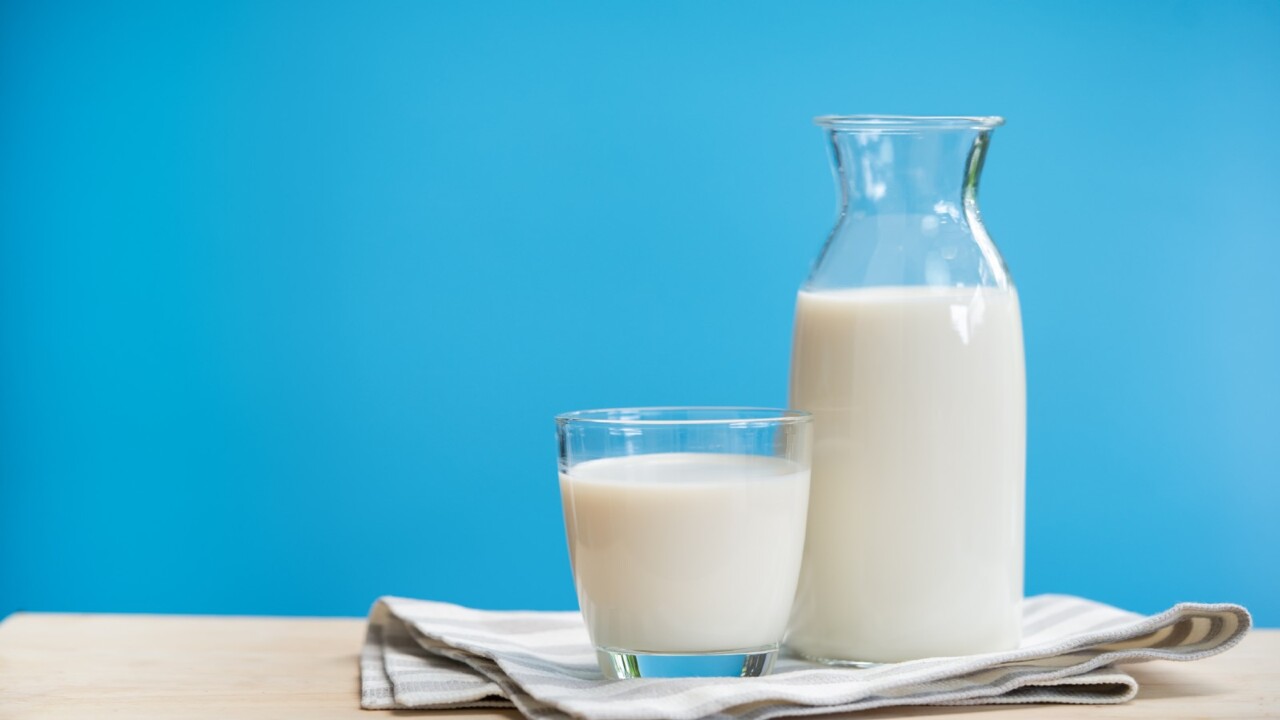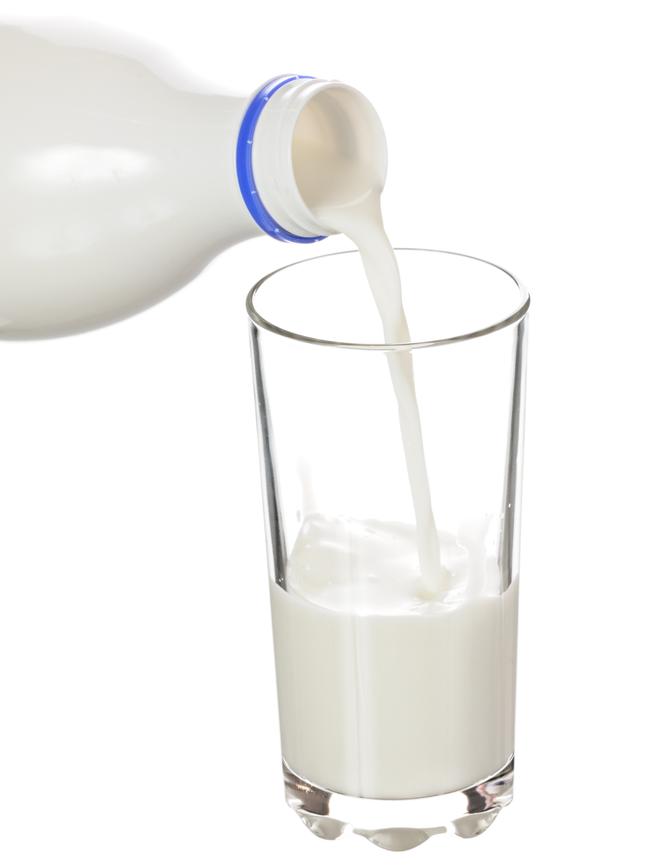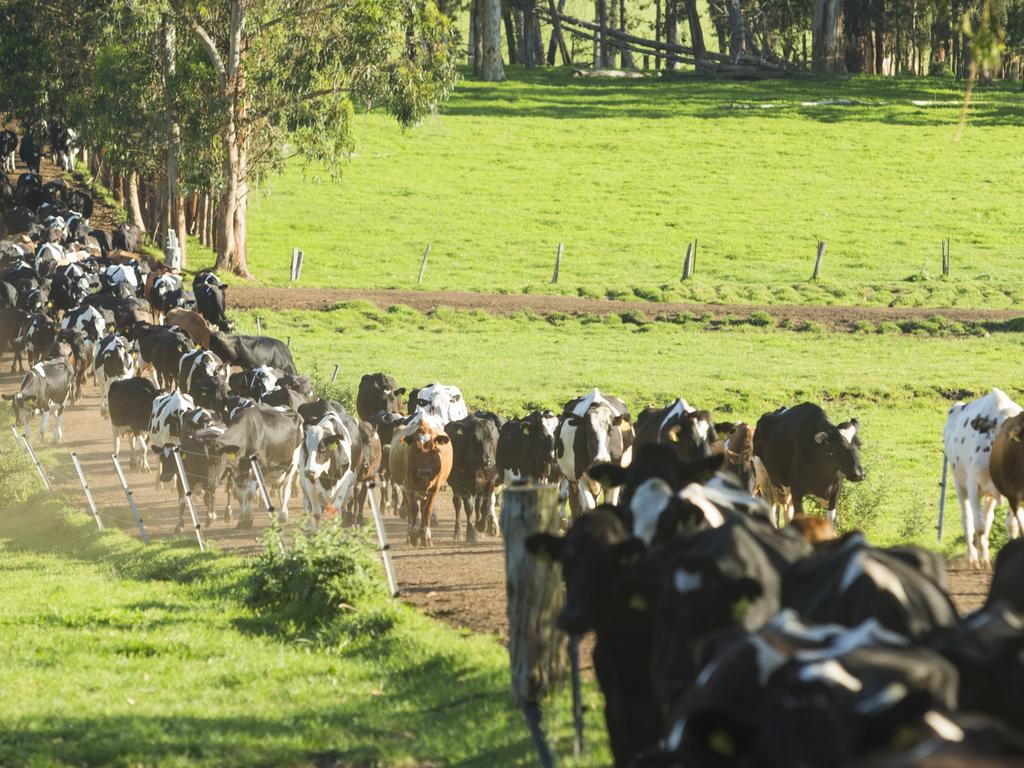How much cheese should you eat? You will not like the answer
If a little whole-fat cheese is going to make you eat that big salad or fruit-and-veggie plate, go for it, is the expert advice.

A storm of controversy is swirling over the humble glass of milk.
Multiple servings of milk, cheese or yoghurt have long been a staple of Western nutrition advice. Now a growing number of researchers and doctors say people need less dairy than they think, and maybe even none at all.
The US government recommends adults eat three servings of dairy a day. The Australian Dietary Guidelines also recommend eating between two to four serves of milk, yoghurt and cheese a day to ensure enough calcium.
But experts are looking at these figures anew. A committee of scientific advisers is analysing diets with lower amounts of dairy to study what happens to nutrient levels. That is the first step towards possibly changing the recommendation in the next update of dietary guidelines.
The problem? Dairy-rich diets have been linked to increased risks of cardiovascular disease and certain cancers in some studies. Foods like ice cream, full-fat cheese and pizza are high in calories and saturated fat.

However, the research isn’t clear cut. Some studies link dairy foods to a lower risk of heart disease, some cancers and Type 2 diabetes. When it comes to milk, scientists can’t agree on whether full fat or skim is better.
Long story short: Go ahead and enjoy your Greek yoghurt and that mozzarella in your caprese salad. Just don’t have too much; some experts say one serving a day — one cup of yoghurt or 42 grams of the cheese — is good.
A lot depends on what the rest of your diet looks like, nutrition experts say. The main reason to eat dairy is to get calcium, which helps build and maintain bone, and is especially important for children and women over 50. But calcium can come from other sources, like fortified soy milk, tofu, kale, edamame and bok choy.
And much of our dairy consumption happens in the form of pizza and cheese-laden sandwiches. Better sources are foods that aren’t ultra-processed or high in sugar — plain yoghurt, for instance.
If you’re eating dairy instead of fruits, vegetables, beans and whole grains, that’s unwise. But if you’re consuming milk, yoghurt and cheese instead of processed meat, cake and lemonade, “that’s probably going to be beneficial,” says Dr Walter Willett, a professor of epidemiology and nutrition at the Harvard School of Public Health.

One reason we don’t have definitive answers on dairy is that many studies are observational, meaning scientists ask people what they eat and look at their health over time. That approach makes it hard to discern the effects of one type of food, says Lindsey Smith Taillie, associate professor in the nutrition department at the University of North Carolina.
In addition, the dairy industry funds some of the research. Still, some useful findings have emerged. There is evidence that a diet high in dairy may lower the risk of colon cancer. The calcium and vitamin D seem to inhibit the growth of cancer cells in the colon, says Carrie Daniel, a nutritional epidemiologist at Maryland Anderson Cancer Centre. Certain fatty acids in dairy may also have an anti-inflammatory effect, she says, which can reduce cancer risk.
By contrast, dairy consumption is also linked to a higher risk of prostate cancer. Dairy foods may increase the level of insulin-like growth factor, a hormone that may fuel prostate cancer growth.
A statement from the president of the National Dairy Council, a research organisation funded by dairy farmers, said: “Dairy foods are a cornerstone of a balanced diet, backed by decades of rigorous, peer-reviewed research demonstrating their role in supporting overall health.”
Some scientists question the government’s calcium recommendations. Several studies haven’t shown a link between higher calcium intake and a reduced risk of bone fractures.

Britain, for example, advises that adults have 700mg of calcium a day. The US recommends 1000mg a day for adult women 50 and under, and adult men 70 and under, and more for older women or those who are pregnant or breastfeeding.
How to square that in your own life? For most adults who eat a relatively healthy diet, one daily serving of yoghurt, milk or cheese is probably best, says Dr Willett. You’ll get about 350mg of calcium from one serving of dairy and another 300mg or so from other foods during the day, he says. For children, most nutrition researchers say dairy may be more important as they build bones.

The debate between low-fat and full-fat dairy has peaked in recent years. The American Heart Association recommend lower-fat dairy products, such as low-fat milk.
Whole milk and full-fat yoghurt and cheese are higher in saturated fat, which raises “bad” cholesterol, a risk factor for cardiovascular disease.
Whole-fat dairy is generally higher in calories too.
But some recent studies comparing low-fat and full-fat dairy consumption haven’t found much difference in health outcomes. There is evidence that the impact of saturated fat on blood cholesterol is more complicated than previously understood.
If a little whole-fat cheese is going to make you eat that big salad or fruit-and-veggie plate, go for it, says associate professor Maya Vadiveloo, chair of the American Heart Association’s Lifestyle Nutrition committee.
Keep in mind, too, that many non-fat and low-fat dairy products contain added sugars, fillers and other additives, Ms Daniel notes. “Choose dairy that has been the least messed with,” she says.
Yoghurt may be the healthiest choice of dairy foods, recent studies suggest. Yoghurt contains probiotics, live bacteria that can improve the health of your gut microbiome. Probiotics help with weight loss and blood-sugar control.
THE WALL STREET JOURNAL





